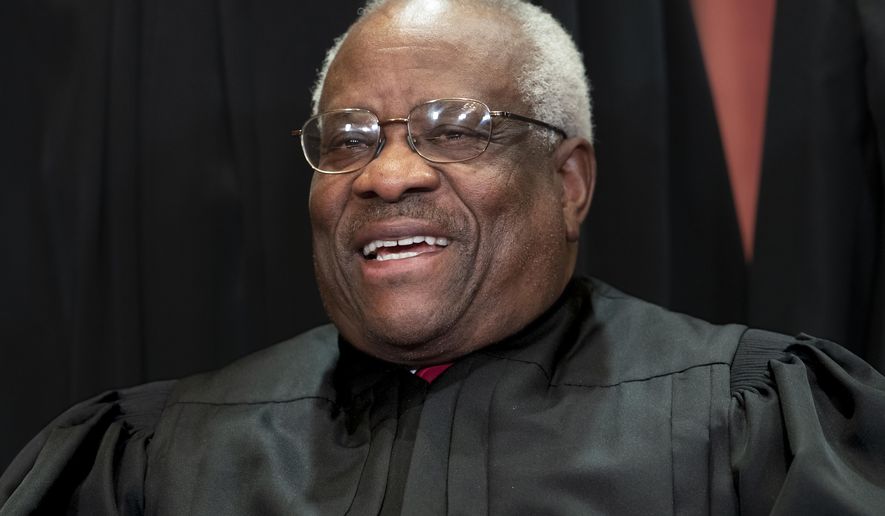OPINION:
Supreme Court Justice Clarence Thomas argued in an opinion Monday that social media companies such as Twitter and Facebook may not have First Amendment rights to ban users on their platforms, laying out the legal framework for Republicans in Congress to regulate Big Tech.
This year, Twitter made the decision to permanently ban former President Donald J. Trump from its platform, and Facebook, Instagram, Google’s YouTube and Snapchat have all issued indefinite bans on the former president. Justice Thomas questioned the legal authority of them doing so, arguing Congress has the power to override the companies First Amendment rights to ensure “that speech is not smothered.”
“As Twitter made clear, the right to cut off speech lies most powerfully in the hands of private digital platforms,” Justice Thomas wrote. “The extent to which that power matters for purposes of the First Amendment and the extent to which that power could lawfully be modified raise interesting and important questions.”
Justice Thomas outlined the threat on free speech Big Tech has on our society, citing Google’s ability to suppress content by “deindexing or downlisting a search result or by steering users away from certain content by manually altering autocomplete results.” Given that Google is the gatekeeper of 90% of online search traffic, this is significant.
He also cites how Facebook and Twitter can greatly narrow a person’s information flow through similar means, and how Amazon can “impose cataclysmic consequences on authors by, among other things, blocking a listing,” as it’s the distributor of the majority of e-books and about half of all physical books.
Justice Thomas suggested Congress label digital platforms as common carriers or places of public accommodation so they can be regulated if they discriminate against their users — like blocking, banning or censoring accounts.
In order to do so, Congress would need to strike down Section 230 of the Communications Act of 1934 — opening Big Tech up for liability.
Republicans in Congress have been debating the legal ramifications of modifying or eliminating Section 230 — with several bills being proposed in the House of Representatives. Justice Thomas’ opinion is significant in that it gives Republican lawmakers the constitutional justification they need to craft their legislation.
“Legal scholars often talk about how fringe constitutional arguments go from ‘off the wall’ to ‘on the wall,’” Mark Joseph Stern, a reporter at Slate, wrote of Justice Thomas’s opinion on Twitter. “Clarence Thomas just took a huge step toward moving arguments against social media companies’ right to engage in content modification ‘on the wall’ — into the mainstream.”
There’s no doubt Big Tech holds a conservative bias — Justice Thomas’ opinion has given Republicans the ammunition to do something about it. Just Sunday, Georgia Rep. Marjorie Taylor Greene’s Twitter account was suspended after tweeting “He is risen” — on Easter Day.
Twitter admitted the suspension was a “mistake,” and that her account is back online — yet these “mistakes” seem to only happen to conservatives. Last year, Twitter and Facebook limited the New York Post’s bombshell report on Hunter Biden’s foreign business exploits, labeling it either untrue or misinformation, only to later admit those, too, were “mistakes.”
Last week, Facebook banned a video of Mr. Trump being interviewed by his daughter-in-law Lara Trump, citing the former president’s indefinite suspension on its site. In an email sent and released by the Trumps, Facebook claimed content with “the voice” of Mr. Trump “is not currently allowed on our platforms (including new posts with President Trump speaking).”
The new post ban applies to all of Mr. Trump’s campaign accounts and “former surrogates” of the president. Big Tech is essentially trying to wipe out all history of the former president of the United States of America. Talk about Orwellian.
Justice Thomas clearly recognizes Big Tech’s bias and has given conservatives the road map on how to remedy it. Republican lawmakers must act and use his guidance to repeal or modify Section 230 so no more conservative voices get canceled.




Please read our comment policy before commenting.